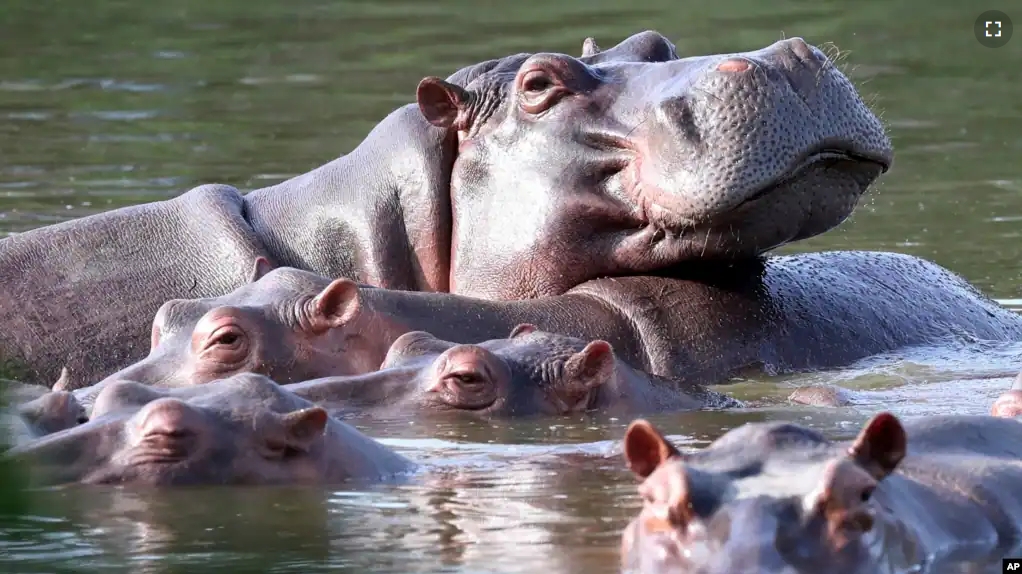Colombia will try to control its population of more than 100 hippopotamuses, large animals from Africa.
The South American country aims to control the big animals using several methods. Officials might sterilize the animals through a medical operation. They might move the hippos to other countries, or possibly euthanize them, the government said recently.
The animals’ ancestors were brought to the country by the late Pablo Escobar in the 1980s. Escobar was the leader of an illegal drug operation in Colombia.
The hippos have spread from Escobar’s home to nearby rivers where they have reproduced. They have no natural predators in Colombia and the government has declared them as an invasive animal that could hurt the environment.
Officials estimate there are 169 hippos in Colombia and that many of them are in the Magdalena River area. They estimate that if no measures are taken, there could be 1,000 by 2035.
Environment Minister Susana Muhamad said the first step of the plan will be to sterilize 40 hippos each year and this will begin soon.
The method is costly. Each sterilization costs about $9,800. And there are risks for the hippos, including reactions to medicines or death, as well as risks to health officials, the ministry said. The hippos live across a large area. They are territorial and aggressive.
Experts say sterilization alone is not enough to control the growth of the invasive animals. The government announced in March that it is planning to possibly move the animals to other countries.
Muhamad said Colombian officials have contacted officials in Mexico, India, and the Philippines, and they are considering a plan to send 60 hippos to India.
“We are working on the protocol for the export of the animals,” she said. “We are not going to export a single animal if there is no authorization from the environmental authority of the other country.”
As a last means to control the population, the ministry is creating a protocol to euthanize the animals.
A group of hippos was brought in the 1980s to Hacienda Nápoles. The place was Escobar’s private zoo. Now it receives many visitors after his death in 1993. Most of the animals live freely in rivers there and reproduce without control.
The people of the nearby Puerto Triunfo have become used to hippos sometimes walking freely around the town.
However, scientists warn that the hippos’ waste pollutes the rivers and could affect the environment where other large animals, like manatees and capybaras, live.
I’m Gregory Stachel.
Karen Sloan reported this story for Reuters. Gregory Stachel adapted the story for VOA Learning English.
_______________________________________________
Words in This Story
sterilize – v. to make a living thing unable to produce children or offspring
euthanize – v. to kill a sick or injured animal or person by giving them drugs so that they die without pain
predator – n. an animal that lives by killing and eating other animals
protocol – n. a system of rules that explain the correct conduct and procedures to be followed in formal situations
authorize – v. to give legal or official approval to or for (something)
